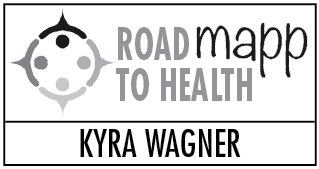I would like to talk about community health, but I am not a health professional. Let me make that clear up front. Luckily, one of the beautiful things about this community is that nothing is black and white. All you have to do is read the opinion pieces in the newspaper in February to know that.
In that rambunctious spirit, we address community health with a broader view than just physical and mental health, so I have been working with MAPP since 2009 despite my lack of health professional credentials. I love working with networks and MAPP functions as a guide for a community network focused on creating positive change together.
Doesn’t that sound awesome? Doesn’t it make you proud to be part of such an innovative and dynamic community? That is why someone like me (who works out of my home mostly behind a computer or garden spade) has become someone so involved with MAPP initiatives in town. They are exciting, positive, and promising.
I love working with diverse groups. I love working with all the different interests and personalities of the members of the Homer Farmers Market, for example. But the people that get involved with MAPP come from all corners of the community and work on all kinds of projects that move in a shared direction. To see us all moving in that shared direction is very rewarding.
To paint a better picture of that, let me tell you about the steering committee that pushes MAPP along. All of them are hardcore professionals (unlike myself) who have very little time to waste on useless endeavors. There are representatives from Kachemak Bay Campus, The Center, the Methodist Church, South Peninsula Hospital, the City, Haven House and more. Each and every one of them is working to improve community health from their perspective. It’s the shared vision that keeps them together.
But now I’m going to start talking about family wellness, so I should make another disclaimer. I am not a parent. Luckily my mom lives in town, so I can say I have family here. But when the community chose family wellbeing to be the focus of MAPP’s initiatives, I have to admit I wondered if my involvement with MAPP would wane.
But then the data started rolling in.
Data clearly shows that for families to be healthy they need a supportive community. In my work with Sustainable Homer I have always focused on “support” that took the form of high tunnel grants or solar panel subsidies.
It turns out that those kinds of things can be feeding one of the main positive factors that support families: stability. Growing your own food can ease your wallet as well as feed your belly. Bringing heating costs down because of weatherization of your house can keep you from being so stressed about finances that you have personal problems at home.
So even I can help make our families more resilient.
It also turns out that there are other things I do that come even closer to helping family resiliency. Working with all the professionals involved with MAPP and while looking at the data about our own community, I have learned about a very important statistic when it comes to children: That each child feel comfortable seeking help from at least one adult other than their parent. The more adults they interact with in their lives, the better off they are.
That sounds simple, but in Alaska people often don’t have the long chains of relatives surrounding them. Most families are lucky if they have two generations living here, and three generations or more gets really rare. So to make our families more resilient, adaptable and emotionally stable, we need to broaden our definition of family.
We already broadened the definition of health, why not broaden the definition of family to include other supportive adults?
One of my favorite pastimes in the world is coaching the debate team at the high school. As it turns out, I can play one of those roles that extended families might play elsewhere. I bring a different perspective to my students than their parents. They tell me things they might not tell their parents. I can feed into another positive factor for families: role models. Simple yet delightful.
As time has gone on, I have learned to see my role in the community with a different light. We really are all in this together. Each of us involved has a different but important role.
In coming versions of this column, I will be asking different members of MAPP for their perspectives on community health and family well-being. I think you may be shocked how different they are, and pleased with how they all work together.
Kyra Wagner is the coordinator of Sustainable Homer and a member of the MAPP steering committee.


